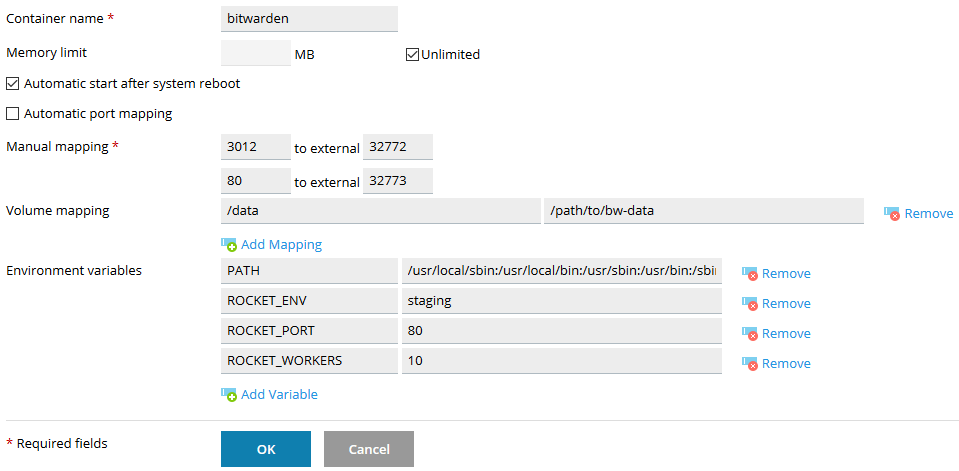Hello there - I am very interested in running a bitwarden instance on our own server and just wanted to run by some questions. Since our server is managed via Plesk, I used Plesk’s own Docker management to run the bitwarden instance.
I did this by creating an instance of mprasil/bitwarden from the Docker Hub. I have also mapped the /data folder of the container to a path on the server:
I then set up a new domain in the plesk interface, enabled a Let’s Encrypt certificate for it and set up nginx proxy rules as described in this tutorial.
So far, everything works fine. I was able to register in the bitwarden instance, there were no problems with SSL and everything is still there after restarting the docker instance.
Now I have the following questions:
Was my process of running the bitwarden instance correct?
Since I am not using bitwarden’s own setup script and instead the Docker management of Plesk, I am simply wondering if I am missing something, when doing it this way.
There is no config.yml - is that of any concern?
Bitwarden’s own instructions say, that there should be a config.yml in the mapped data folder. However, there is none in my case. Currently I have the following files in my mapped data folder:
- db.sqlite3
- rsa_key.der
- rsa_key.pem
- rsa_key.pub.der
Where to put SMTP settings?
Is it correct, to put the SMTP settings in the mapped data folder under env/global.override.env?

